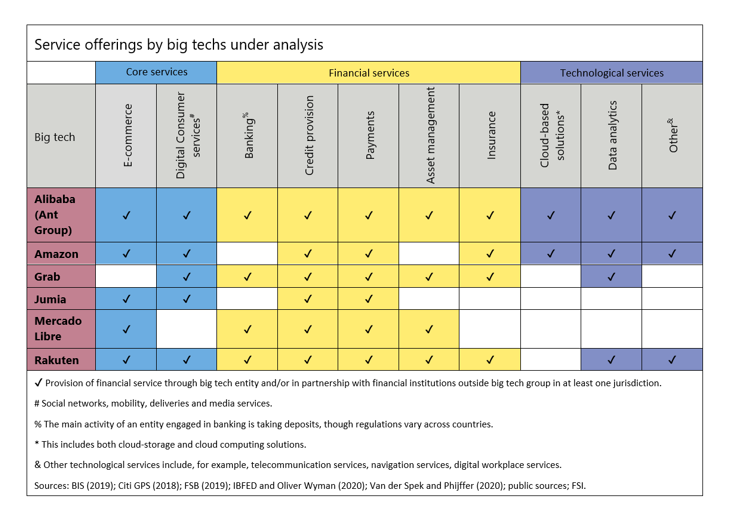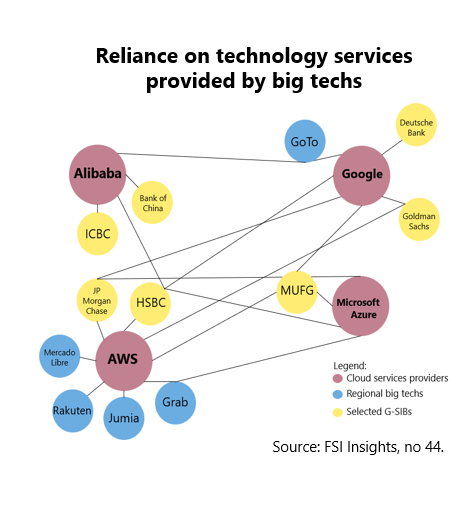New global rules are needed on regulating the activities of Big Tech companies in financial services, a senior banking official said in Wednesday.
Because of their size and reach in social media and e-commerce, data-rich Big Tech companies can quickly build up market share in financial activities, Bank for International Settlements general manager Agustin Carstens said in a speech on Wednesday.
Tech giants such as Alibaba and Amazon have been involved for some time in financial services such as banking, payments, asset management and insurance, with some also providing cloud computing to run key services for banks.
But this creates a risk of them becoming “too big to fail” – a problem regulators hoped they had solved with banks after bailouts in the financial crisis over a decade ago.
“Without a doubt, a regulatory rethink is warranted, and we need a new path to follow,” Carstens said, adding a new “holistic” framework was needed that included requiring Big Tech financial services to be ring-fenced from other operations.
The vast troves of data accumulated by Big Tech firms give them valuable information about potential financial services customers, such as their wealth and spending habits.
Companies from Jumia in Africa to Grab in Southeast Asia are trying to tap into that by providing services such as credit and payments processing.
ALSO SEE:
Biden Warns China Over Spy Balloon, Vows More Chip Action

No obvious ‘lead’ regulator
Big Tech firms with significant financial activities could also be subject to group-wide requirements on governance, conduct of business and operational resilience, Carstens said.
Implementing “holistic” financial rules for Big Tech would be challenging given the sector is already overseen by data privacy and competition regulators locally and internationally, with no obvious “lead” regulator, he added.
Operational resilience rules are already emerging in the European Union, Britain and elsewhere to give financial regulators oversight on the use by banks and insurers of outside cloud computing firms like Amazon, IBM and Microsoft to host services.
Microsoft’s $2-billion deal with London Stock Exchange Group in December was the latest sign of how boundaries between Big Tech and finance are blurring.

The potential benefits of Big Tech firms’ entry into finance include improved customer outcomes, increased financial market efficiency and enhanced financial inclusion, Carstens said.
“It is high time to move from theory to practice and consider tangible options for regulatory actions.”
- Reuters with additional editing by Jim Pollard
ALSO SEE:
Grab Tightens its Focus, Reining in Financial Service Goals
China’s Alibaba Unwinds Corporate Links With Ant Group
China’s Central Bank Signs Currency Agreement With BIS
India Aims to Break Amazon, Walmart’s Grip on E-Commerce
BIS Leaves Crypto Out of Digital Monetary Future Blueprint
BIS Completes Project to Develop Platforms for Multiple CBDCs
























